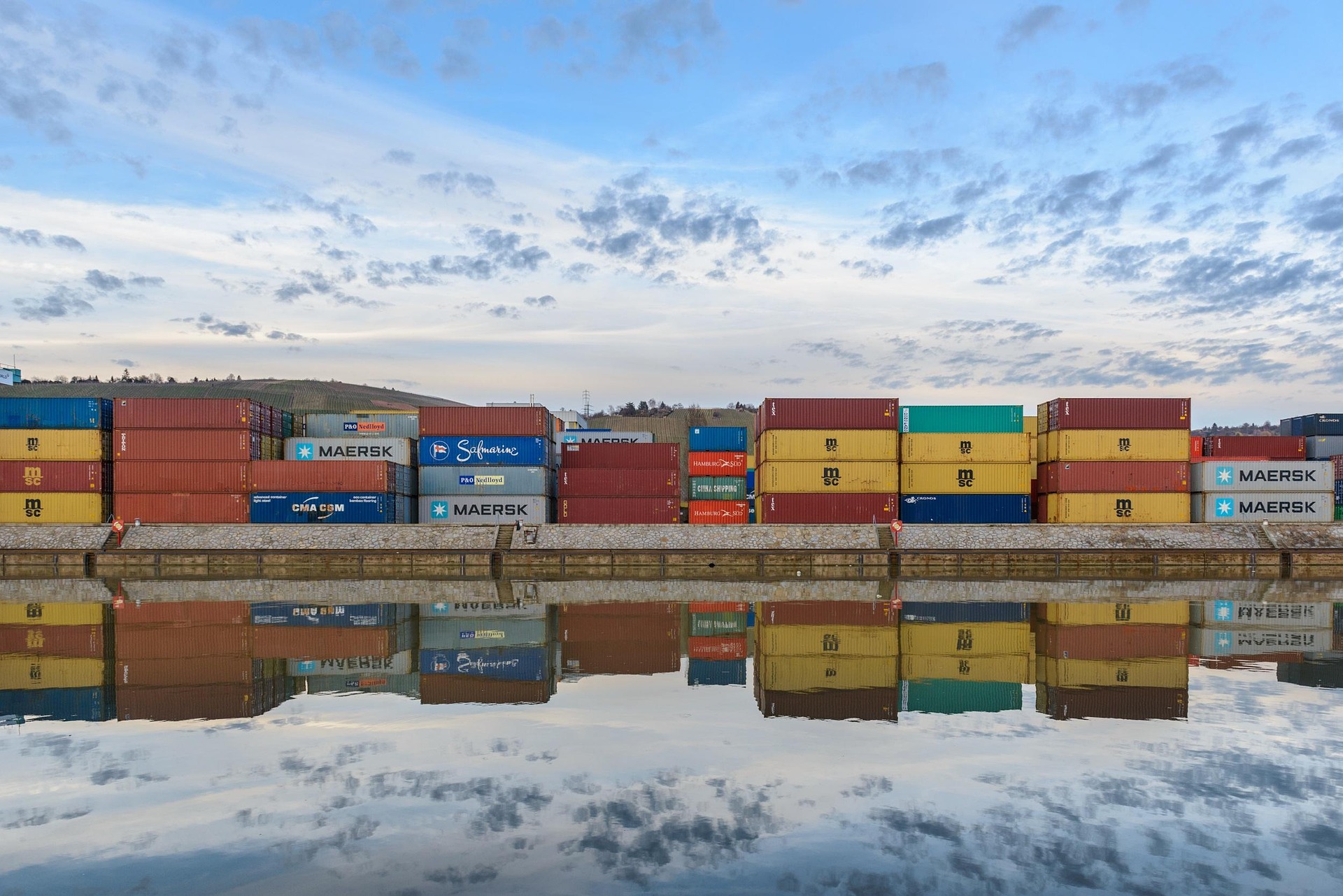
What is Non-Commercial Export and How Is It Done?
Non-commercial export refers to the shipment of goods abroad without receiving any payment in return. This type of export is not intended for commercial sales and is typically carried out for purposes such as promotion, donation, shipment of products under warranty, or sending samples. Although there is no foreign exchange gain, non-commercial export is also subject to official customs procedures, and a customs declaration must be issued for this transaction. Therefore, for the process to be managed correctly, companies must be familiar with the relevant regulations and prepare their documents completely.
Shipments made for promotional and marketing purposes, demo products provided to overseas dealers or representatives, spare parts sent under warranty, or humanitarian aid donations by public institutions fall within the scope of non-commercial export. This practice often lays the groundwork for long-term business relationships. For example, sending a sample for product promotion can lead to future orders for that product. Therefore, non-commercial export is also considered a strategic marketing tool.
Remember
Standard export procedures also apply to non-commercial export transactions. Declaration, documentation, and approval processes must be completed without omissions.
Reasons for Non-Commercial Export
Non-commercial export may be performed for various reasons such as promotional and marketing shipments, replacement of products under warranty, charitable donations, test/R&D products, or educational materials.
Required Documents
All documents must be prepared completely, such as customs declaration, invoice stating “non-commercial”, approval from the exporters' association (if required), warranty certificate, and delivery note.
Export Declaration
An electronic customs declaration must be prepared and approved for each non-commercial export transaction.
Permissions and Approvals
Depending on the type of shipment, approval from relevant public authorities (such as the Ministry of Trade or exporters' association) may be required.
In what situations can non-commercial export be performed?
Areas of ApplicationSituations such as promotion, shipment of products under warranty, aid activities, sample dispatch, and delivery of products for academic or technical purposes fall within the scope of non-commercial export.
Is it necessary to issue an invoice?
Invoice PracticeYes. The phrase "Non-commercial, contains no commercial value" must be included on the invoice. Product descriptions and quantities should be clearly stated.
Is there VAT exemption?
Tax ExemptionSince non-commercial export is accepted as export, it is exempt from VAT. However, in order to benefit from this exemption, the relevant documents must be prepared completely.
Is approval from the exporters' association required?
Authorized BodiesFor some non-commercial export transactions, approval from the exporters' association may be required. This is especially mandatory for promotional and warranty shipments.
Expert Advice
Non-commercial export can enhance your marketing power as well as lay the foundation for long-term business relationships. However, make sure to comply with all relevant customs and trade regulations for each shipment.
Required Documents and Application Conditions
As non-commercial export transactions involve the shipment of goods or products without any payment, they have a different structure from commercial exports and require careful document management. According to the regulations set by the Republic of Turkey Ministry of Trade, all documents used in such export transactions must be both compliant with the legislation and complete. In addition, the reason for the export must also be clearly stated in the documents.
Non-commercial export transactions carried out for reasons such as promotion, sample dispatch, replacement of parts under warranty, re-shipment of returned products, or donations to public institutions are also subject to specific conditions in terms of customs procedures. The purpose of shipment, the content of the product, and the final area of use should be clearly stated in the documents to ensure a smooth process. Especially, permission documents and supporting papers that vary by product group must be carefully checked before the process begins.
Petition and Explanation Letter
A petition explaining the reason for the non-commercial export must be prepared on company letterhead and signed by an authorized person. The petition should clearly state the purpose of shipment, the identity of the recipient, and the reason for shipment.
Proforma or Commercial Invoice
An invoice must be issued, containing details such as the type, quantity, and nominal value of the product to be shipped, and including the phrase "non-commercial." This invoice is important both in the declaration process and for VAT exemption.
Relevant Institutional Permissions
For products in certain sectors such as health, agriculture, environment, or defense, valid permits from the relevant ministry or institution must be included in the process. Customs clearance cannot be completed without these documents.
Customs Declaration
The customs declaration, to be issued electronically, must be recorded in the GTB system and must include a statement of "non-commercial export." It should be prepared in coordination with a customs broker.
Important Note
Even though non-commercial export transactions may appear simple, a lack of documents or incorrect declarations can result in penalties. Therefore, it is very important to carry out the process with experts before starting the transactions.

Products Covered by Non-Commercial Export
Products that can be sent abroad under non-commercial export refer to goods that do not serve a sales purpose, but rather serve non-commercial purposes such as promotion, representation, warranty, or donation. Such shipments not only support companies' marketing activities, but also play a major role in social responsibility projects and corporate reputation management. These products are often sent to build trust or provide technical support before establishing a commercial relationship.
Products sent under non-commercial export include samples, promotional items, spare parts sent for faulty goods, humanitarian aid materials, donations provided to public institutions, and products sent abroad as part of technical service. Although these products do not generate commercial revenue, they are highly valuable for long-term gains in companies’ export strategies. In addition, since some products can only be sent under non-commercial export, it is important to clearly understand the scope of this practice.
Samples and Promotional Products
These are sample products sent to potential customers to give an idea about the product. They are used as part of the marketing process before sales take place.
Parts Under Warranty
These are spare parts and equipment sent free of charge under warranty for products previously sold abroad that have developed faults.
Humanitarian Aid Materials
These include products such as food, medicine, medical supplies, tents, and clothing sent to disaster, war, or crisis areas. They are carried out by public institutions or NGOs.
Returned Goods
These are products that have been returned, found to be faulty, or not accepted and are re-shipped abroad free of charge. Especially common for technical products.
Donation and Grant Materials
These cover products sent for social, technical, or cultural purposes to universities, public institutions, or associations/foundations abroad. They do not serve a commercial purpose.
Products for Testing and R&D Purposes
These are products sent to evaluate the performance of newly developed items or for prototype trials. They are generally expected to be returned.
Tip
The reason why products are shipped as non-commercial must be clearly stated in invoices and explanation documents. Explanatory documents save time and cost during customs procedures.
Points to Consider When Issuing an Invoice
Invoices issued under non-commercial export are similar to standard export invoices in terms of content; however, they must include certain special statements and conditions. Both sender and recipient information must be provided in full, product descriptions should be detailed, and clear statements indicating that the goods are shipped free of charge must be included.
The invoice should clearly indicate the currency to be used, the product’s value (to be declared nominally), the reason for shipment, product origin, customs tariff code, and delivery terms. Additionally, the invoice date must match the export declaration date.
“Non-Commercial” Statement
The invoice must include expressions such as “non-commercial” or “free sample.”
Customs Value
Even though the goods are non-commercial, their market value should be declared in the customs declaration.
Explanation Section
The explanation field of the invoice must specify reasons such as “non-commercial shipment” or “for sampling purposes.”
Date Consistency
The invoice date must match the declaration date, and there should be no discrepancies between documents.
Tip
If you are uncertain while preparing the invoice, referring to customs brokerage services or the communiqués published by the Ministry of Trade will help streamline the process.
Frequently Asked Questions About Non-Commercial Export
Since non-commercial export processes differ from standard export procedures, many exporters have various questions in mind. Below you can find the most frequently asked questions and summary answers:
Can VAT refund be obtained in non-commercial export?
Tax PracticeNo. Since there is no sales revenue in non-commercial export, it is not possible to obtain a VAT refund.
Is prior authorization required for non-commercial export?
Authorization ProcessPrior authorization may be required from the Ministry of Trade for certain product groups or donations to public institutions.
Is the non-commercial export declaration the same as the standard export declaration?
Declaration DifferenceAlthough they are similar in general structure, non-commercial export declarations must include the “non-commercial” statement and explanatory information.
Are products sent free of charge considered under warranty?
Warranty StatusYes. Products sent under warranty are also evaluated as non-commercial export, and appropriate documents must be prepared accordingly.
Expert Advice
Both commercial and legal aspects should be considered in non-commercial export transactions. Incorrect declarations may put your export rights at risk. It is important to seek professional support from customs brokers when necessary.
